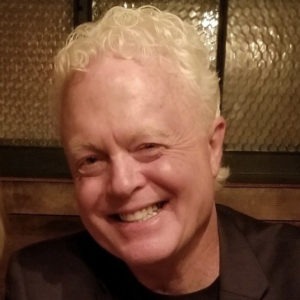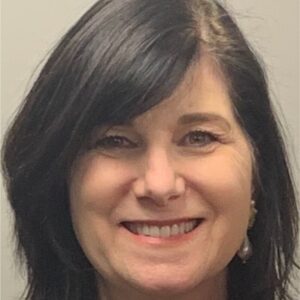2015 Leaders of Tomorrow: Ben Pyper, NHA
When Ben Pyper arrived as administrator of Lincoln Square Post-Acute Rehabilitation in 2013, his first role was tackling the care site’s ugly past under its previous ownership. Just two years earlier, the current owners had purchased the failing skilled nursing facility (SNF) with hundreds of deficiencies on its record. Previously named Delta Valley, the Stockton, Calif., site had earned the snickering community moniker of “death valley.”
“When I first arrived, I heard stories from neighboring employees about the stench coming from the open windows on warm summer nights,” Pyper recalls. “Delta Valley had a terrible reputation—probably the worst facility in the county.”
When the new owners bought the property in 2010, they began a total makeover, including renovations and quality initiatives. The owners retained some of the facility’s long-standing employees, including the activity director and social services director, while bringing in experienced clinical staff as new hires, including the director of nursing.
Under its new ownership and new name, the 68-bed SNF—still facing scrutiny as a special-focus site—had plenty of changes to make. But by 2013, the facility had earned a deficiency-free survey and the beginning of a new reputation. Meanwhile, Pyper adopted culture change as his mission, especially when it came to relationships with local care partners. “We had to go office by office, and go to the hospital and say, ‘Please just one chance, let me show you how we're different now,’” he says.
While the new owners invested millions in renovations, Pyper invested in new staff hires and training. “Our nurse-to-patient ratio is now about 4.7 per patient day—the highest in the county.” He focused the staff on communication and openness with residents and families, using the “show rather than tell” method of changing the local community’s view of the facility.
“The satisfaction goes way up, because the patients and families are getting more attention. The nurses can explain what treatment they’re doing and what the medication is,” Pyper says. “If we put quality in the front of what we’re doing, everything else will fall in line. We’re reaping the benefits of that; we now have a waiting list for patients wanting to come here for our services.”
New opportunities
Lincoln Square provides everything from 24-hour skilled nursing to end-of-life care, but an unusual percentage of its intake stems from its unique location—right across the street from Dameron Hospital, which performs plenty of orthopedic surgeries. Pyper jumped on the chance to form strategic relationships with the hospital that would solidify the SNF’s role as a local care partner while improving quality benchmarking for all parties.
“We serve a lot of orthopedic patients here, so we said, ‘What if we establish a care continuum and get some research behind it?’ We could create a collaborative program where we get really good providers in the hospital and in the post-acute setting all together working together and see what happens with patient outcomes.”
The result was a grassroots orthopedic consortium involving Dameron surgeons, Lincoln Square’s post-acute care team, academics from University of the Pacific and several local home healthcare agencies. “We all meet together every few weeks and talk about case studies, problems we’ve encountered and new ideas,” Pyper explains. “One of our meetings was focused on readmissions and infections, so we got all our infectious disease nurses together and shared best practices and talked about how we can collaborate for better care and reduced infection risk.”
Under the elective program, patients due for orthopedic surgery can select Lincoln Square as a rehab option and receive detailed care plans for continuing care from the surgical table to rehab release. The efforts, under way for a year, have changed the medical community’s view on what quality transitions of care actually mean and have changed the view of customers choosing Lincoln Square’s rehab care, too, Pyper notes. “Now, before patients even hit the operating table, they’ve toured our facility and met our staff, or they’ve met the home healthcare agency,” he says. “They know and understand what the rehab process is going to look like, who's going to be providing their care and what kind of outcomes they can expect.”
Not one to sit long without a challenge, Pyper is busy developing a new collaborative program for cardiac care, including local cardiologists who offer training to Lincoln Square’s post-acute nurses and therapists in the needs of residents with congestive heart failure, so the nurses can be better educators for residents.
As another part of Lincoln Square’s culture change, Pyper sets an example by remembering the local components crucial to delivering quality care, including the local support services. Each year, Lincoln Square hosts a “first responder breakfast” for the local emergency medical transport, police and fire squads, prepared onsite by a professional chef.
With Pyper’s help, Lincoln Square has soared from the worst to one of the best, earning a five-star rating and the respect of its community and its care partners. Admirable accomplishments for a man who started his career in computer information technology rather than healthcare. But the odd juxtaposition of his careers was an advantage, Pyper says, because it allowed him to view the long-term care industry with different eyes. “In the technology world, it’s all about iteration,” he says. “You’re constantly changing yourself and upgrading. I'm thinking we should do more of that in healthcare.”
Read about the other 2015 Long-Term Living Leaders of Tomorrow here.

Pamela Tabar was editor-in-chief of I Advance Senior Care from 2013-2018. She has worked as a writer and editor for healthcare business media since 1998, including as News Editor of Healthcare Informatics. She has a master’s degree in journalism from Kent State University and a master’s degree in English from the University of York, England.
Related Articles
Topics: Articles , Leadership











